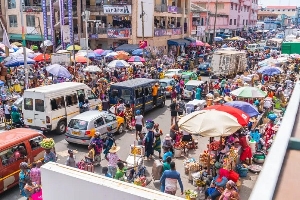About 850,000 Ghanaians, mostly women have been pushed into extremely severe poverty in 2022 due to factors such as high levels of government debt and the closure of international markets to Ghana, among other factors.
This is the finding of a research report by the Women in Informal Employment: Globalizing and Organizing (WIEGO).
According to the research conducted in October 2023, although Ghana has made a slight economic recovery from the COVID-19 pandemic, a significant number of the 850,000 Ghanaians in extreme poverty became vulnerable to inflationary pressures which led to a cost-of-living crisis.
“While the economy had slightly recovered from the pandemic in 2021, high levels of government debt, the closure of international markets to Ghana, and global disruptions to the supply chain as a consequence of the war in Ukraine all led to a steep depreciation of the cedi (ITA, 2023).
"Considering the country relies heavily on imports, the situation resulted in high inflationary pressure. In 2022, nearly 850,000 Ghanaians were pushed into poverty due to rising prices (Kwakye et al., 2023: 44),” parts of the report stated.
It added that, “By the time this research was conducted (October 2023), the inflation rate averaged 35 per cent. It was particularly high for food and non-alcoholic beverages (+45), and other necessities like health services (+28), housing, water and electricity (+25), transport (+25), and education (+13) (GSS, 2023a:7).”
The report found that the cost-of-living crisis disproportionately affects workers in informal employment, who make up 89 per cent of the employed population nationally (83 per cent in Accra).
EAN/BB
Ghana’s leading digital news platform, GhanaWeb, in conjunction with the Korle-Bu Teaching Hospital, is embarking on an aggressive campaign which is geared towards ensuring that parliament passes comprehensive legislation to guide organ harvesting, organ donation, and organ transplantation in the country.
Click here to follow the GhanaWeb Business WhatsApp channel
Business News of Saturday, 20 April 2024
Source: www.ghanaweb.com
850,000 Ghanaians shoved into poverty due to high government debt and others – Report
Entertainment
















